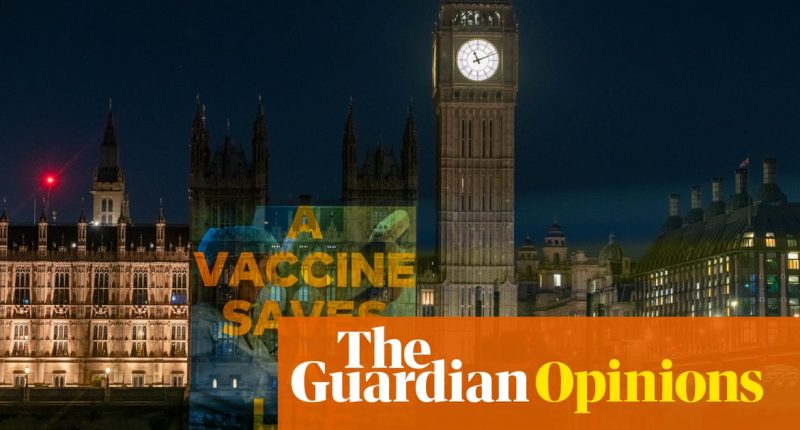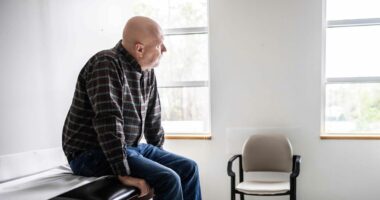Share this @internewscast.com
Last week, the UK announced a world first in sexual health programming: a vaccine that can protect against infection by gonorrhoea bacteria is to be made available in sexual health clinics across England, Scotland and Wales. Now comes the rollout – which will require avoiding the mistakes of the past to make sure it reaches those most in need.
The vaccine has offered hope for intervention in an otherwise concerning landscape of increasing numbers of cases of gonorrhoea infection demonstrating resistance to treatment by antibiotics and with infection rates at their highest since records began.
Although it can occur without noticeable signs of infection, for most people gonorrhoea will be experienced as a set of uncomfortable symptoms, such as pain or fluid discharge in the genitals, anus, throat or even eyes. If left untreated, gonorrhoea can result in serious complications, including pelvic inflammatory disease, which can lead to infertility in people with a womb and ovaries (who are less likely to experience telltale symptoms in the first place).
When it is launched in August, the gonorrhoea vaccine will first be offered to gay men, bisexual men and men who have sex with men (GBMSM), who, according to the most recent data, are the individuals most likely to test positive in the UK. Especially where resources are limited (ie in the real world of healthcare delivery), vaccination programmes are most successful when they are targeted to the groups or individuals at the highest risk of infection. Indeed, a model produced by researchers in 2022 has suggested that a successful programme of gonorrhoea vaccination among GBMSM in England at the highest risk of infection could prevent more than 100,000 cases of gonorrhoea over 10 years and, crucially, save the NHS an estimated £7.9m. The predicted cost-saving of a gonorrhoea vaccination programme is particularly welcome for sexual health services in the UK that have faced upwards of £1bn in cuts since 2015.
However, this decade of cuts poses a risk to the success of a gonorrhoea vaccination programme. For one, widespread divestments from sexual health have not been experienced homogeneously. Access to sexual health services, where these vaccines are given, is increasingly a postcode lottery. Even in better-resourced areas such as London, where rates of gonorrhoea transmission are highest, appointments at overstretched and underfunded clinics can be hard to come by and inconveniently timed. Research shows us that a de facto “first come, first served” model of appointment provision disproportionately favours people who are older and better off – who typically have more flexible schedules – and creates particular barriers for immigrants to the UK, who are less likely to have the cultural and linguistic fluency to navigate convoluted processes for accessing appointments.
That said, even when appointments are available, many people will continue to experience enormous barriers to accessing services. First- or secondhand experiences of clinical and medical racism, distrust, fears of judgment and stigma, shame and avoidance, and a lack of access to culturally competent care and information collude to distance historically marginalised groups – especially Black communities in the UK – from in-person clinical settings. It is these very barriers that contribute to the disproportionate infection rates among Black communities – especially Black GBMSM, who are therefore among those in most urgent need of access to effective vaccinations.
Recent successes combating mpox outbreaks among GBMSM, however, demonstrate for those from marginalised backgrounds, there are effective avenues to deliver vaccines other than just sexual health clinics. Since 2022, the Love Tank – a London-based nonprofit that works to improve the health and wellbeing of underserved communities – has worked hand in hand with NHS partners to provide vaccinations against mpox (and, among other diseases, Covid) in community settings in an attempt to deliver services to people less likely to access them in clinics. With pop-ups at sex-on-premises venues, community centres, queer bars, clubs, parties, sex shops and Pride events (including three years running at UK Black Pride), these under the radar (UTR) events have been able to deliver hundreds of vaccinations to people – mostly queer people of colour and queer immigrants – who would probably not otherwise have received them.
The development of suitable and effective vaccines is always the first stage of a multi-faceted project of inoculation. Vaccines that work, biomedically speaking, require systems that work. The next steps are more funding for starved bricks-and-mortar services, and continued investment in creative and effective methods for delivering services direct to the community, and for the partners that can help achieve this.
















